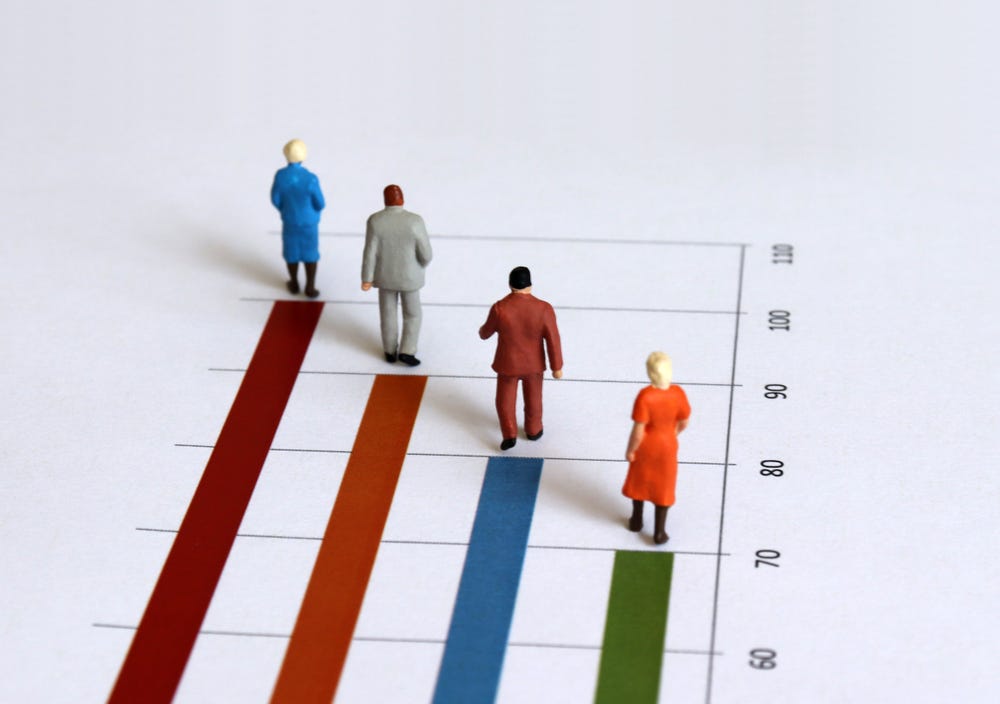E-Pluribus | July 13, 2023
Affirmative action's implied expectations; liberalism isn't to blame for illiberalism; and politicizing education is wrong no matter who is doing it.
A round-up of the latest and best writing and musings on the rise of illiberalism in the public discourse:
Nafees Alam: Discrimination by Altered Expectations
While Boise State assistant professor Nafees Alam was a beneficiary of affirmative action, he believes its overall impact is negative. Alam writes at Heterodox Academy about the insidious assumptions regarding how the practice impacts the perceptions of those on the receiving end.
Prior to being an assistant professor, I was a university student. The first assignment I had to complete in 2010 at the start of my Master’s education was a reflection paper on Peggy McIntosh’s White Privilege: Unpacking the Invisible Knapsack. This reading included a list of twenty-six conditions that indicate the presence of white privilege. Upon reviewing this reading, my reflection paper was clearly different from what my professor had expected from a person of color. I argued that the twenty-six conditions indicating white privilege were more akin to conditions indicating green privilege: socioeconomic status. Not all people of color are socioeconomically underprivileged and it’s racist to make such a claim.
I failed this assignment and I was permitted to revise and resubmit because I “did not understand the spirit of the assignment.” As a social experiment, I wrote the same reflection paper again, except changing my perspective to be in agreement with the professor’s, no changes in grammar, length, or detail. My revised grade was 100%, and I realized that I would not be graded based on my academic abilities, rather on whether my expressed worldview was in agreement with my professors’. This was the first time I considered a career as a professor because this needed to change.
Even though Condition #22 of the McIntosh reading states, “I can take a job with an affirmative action employer without having coworkers on the job suspect that I got it because of my race,” it was clear that the professor herself expected me, a person of color, to fit into the definition that she had created for people of color, not allowing me to define myself. To her credit, she likely thought that she was being benevolently ‘woke’ by vicariously experiencing my experiences for me. She likely did not realize how her performative activism was promoting people of color to self-oppress by assuming that people of color must have negative experiences and anything to the contrary was a mirage.
Read it all here.
Gerard Baker: Don’t Blame Liberalism for Illiberal Progressives
Has classical liberalism had its day? At the Wall Street Journal, Gerard Baker pushes back against that idea and says liberalism mustn’t be blamed for the failures of those who misunderstand or distort its principles.
There’s a lively debate on the right about whether liberalism as the organizing principle of the West’s political culture has had its day. Advocates for the proposition base their case on an irony. The precise moment at the end of the Cold War when we thought the political and economic systematization of individual freedom had won turned out, they say, to be the moment when that regnant ideology was about to be cruelly exposed for its excesses and contradictions.
Notre Dame political scientist Patrick Deneen’s latest book, “Regime Change,” expands on the idea in the title of his earlier work that liberalism has “failed.” Widespread popular discontent with the fruits of liberalism has been recorded in the successes of leaders such as Viktor Orbán in Hungary, or, if you squint hard enough to discern the outline of a coherent political philosophy, Donald Trump.
The idea is that, far from representing a kind of endpoint of political evolution, untrammeled liberalism has left us with social ruin. In the economic field, the pursuit of market extremism has led to the devastation of traditional industrial communities. In the political and social fields, the fetishization of individual choice has created a landscape of anomie and despair, pockmarked by all the modern familiar social pathologies of addiction, isolation and family collapse.
This is no accident, they say, but an inevitable outcome of a liberalism that, as a social objective, is essentially without values—a society that pursues freedom for freedom’s sake lacks the necessary moral direction to build a stable and happy country.
There may be something to this, but I think it fundamentally misses the much more immediate challenge our ailing liberal democracy faces. It isn’t some inherent flaw in liberalism itself, but a familiar threat from the authoritarian tendency of the left in the West’s political culture. The instinct of so-called progressives to impose statist and collectivist solutions to society’s problems is well established, but in the past decade or so a redefined ideology of progressivism—in cultural and economic terms—has emerged in ways designed to look like an extreme liberalism but which are in fact the direct opposite.
Read it all.
Robert Tracinski: Crossing the Rubicon on the Politicization of Education
Quite a few conservatives and Republicans over the last decade have decided they are losing too much ground “playing by the rules” and have decided to adopt the tactics that have been successfully, they perceive, used by their opponents against them. Focusing on education in particular, Robert Tracinski writes at Discourse Magazine that this strategy is a losing one, not just for the right, but for everyone.
In trying to impose their own ideological bent on public schools, isn’t the right just fighting fire with fire? Haven’t many on the left already been politicizing education? Certainly they have. But the difference is how they have done it.
[ . . . ]
The centerpiece of the nationalist conservative ideology is to reject the idea that law and government administration should adhere to “viewpoint neutrality.” The argument is that this neutrality is an example of how classical liberalism has failed to restrain the left. But in reality, the rejection of viewpoint neutrality recklessly tears down one of the restraints that has been holding the radical left in check.
The nationalist conservatives want to dismantle this protection so that there is nothing to restrain them from imposing their viewpoint on the schools, which is bad enough. But their foolishness is that this politicization of education opens up a struggle for power they are unlikely to win.
The thing about crossing the Rubicon—the fateful decision by Julius Caesar to bring his legions back to Rome and use them in a scramble for total power—is that it unleashes forces you can’t control. That’s something Caesar found out a little too late.
Making education openly and officially a tool of politics means that education will tend to be looked at only through that lens. Nationalist conservatives dress up their reform as an attempt to restore “classical education.” But classical education encompasses a wide variety of ideas that aren’t part of a narrow partisan agenda. If we view education as a political tool, then we can expect education to be reduced and dumbed down to a mere vehicle for political or religious propaganda.
Read the whole thing.
Around Twitter
Zaid Jilani and David Bernstein find the New York Times is less than reliable on certain topics:
Many in the media have adopted “gender-affirming care” terminology. Here’s Leor Sapir and Wesley Yang putting it in perspective:
And finally, Peter Boghossian with a similar observation about “sex assigned at birth”:











